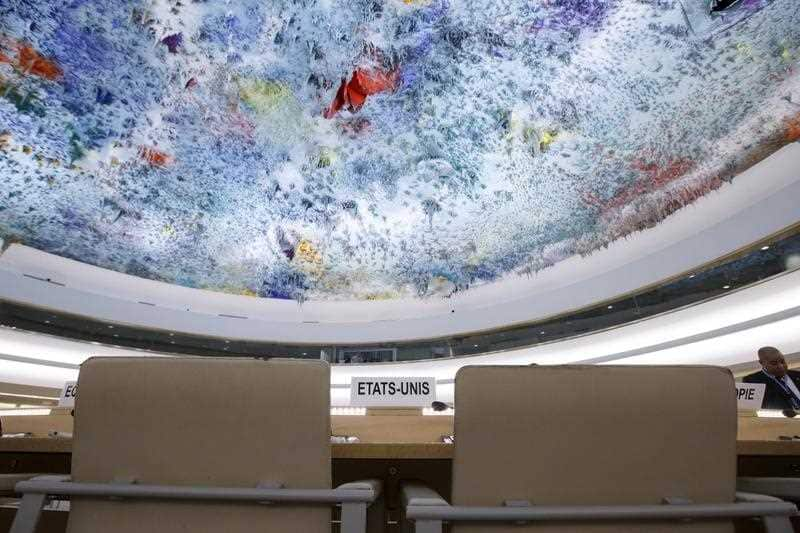The United States's withdrawal from the United Nations Human Rights Council presents an opportunity for Australia to step up as a rights defender, experts say.
Australia won a seat on the council last year following a lengthy and expensive campaign, elected unopposed after France pulled out.
Former High Court Justice Michael Kirby, who chaired the council's inquiry into rights abuses in North Korea, says Australia has a chance to be a more vocal contributor at council meetings.
"Australia is an English-speaking parliamentary democracy with the rule of law and the withdrawal of the United States makes a natural opening for Australia to be more forthright in its role," he told SBS News on Thursday.
"But the price of doing that is that the spotlight immediately swings back on us, and on our record, and in some areas, we have been deficient."
US 'damaging its credibility'
US ambassador to the UN Nikki Haley announced on Wednesday the US would leave the council, branding the body a “cesspool of political bias” and accusing it of harbouring anti-Israel bias.
Human rights advocates say while the decision comes as no surprise given recent trends from the Trump administration, including the controversial family border separation policy, it was nevertheless a disappointing decision.
Mr Kirby said the withdrawal would hurt the US, which held a "special responsibility" to advocate for reforms it can persuade other nations to adopt.
"Far from advancing its viewpoint, such withdrawals wound the impact that the voice of the US inevitably carries," he said.
Hugh de Kretser, the executive director of the Human Rights Law Centre, said it was short-sighted and could hurt the US’s global standing. The US played an important role in addressing global human rights issues, he told SBS News.
“By quitting the council, it’s denying itself the ability to influence those outcomes in a positive way. It absolutely weakens the US position on this in terms of credibility and also effectiveness," he said. But David Smith from the United States Studies Centre in Sydney says it's not the first time the US has made such a move – it also withdrew from the council during the George W. Bush administration.
But David Smith from the United States Studies Centre in Sydney says it's not the first time the US has made such a move – it also withdrew from the council during the George W. Bush administration.

The empty seats of the US delegation before a session of 34th session of the Human Rights Council in 2017. Source: EPA
“The US is in a pretty similar position to what it was [then] which is that a lot of other countries just didn’t see it, and don’t see it now, as any kind of credible guarantor of human rights," he said.
“When the United States undertakes this decision, in a sense it doesn’t actually lose much. The US feels that it doesn’t need that place at the table. They think that the human rights council needs them more than they need it. They may be right about that.”
'Council weakened'
The US withdrawal could also weaken the standing of the human rights council, which has already been criticised for apparent ineffectiveness.
Mr Smith said the decision could decrease the power of the global body.
“When the US is there, and in the instances where the US actually agrees with other countries on the council, that can be a fairly powerful form of consensus, even if the resolution doesn’t do much.
“Without the US where you basically just never have that kind of consensus.”
Mr de Kretser agreed the decision could affect the council.
“It removes an important member of the council who was supporting scrutiny around those abuses so it weakens the system.”
Share


